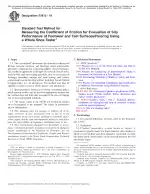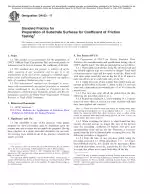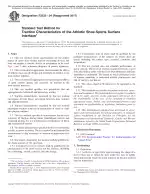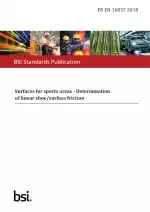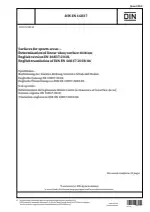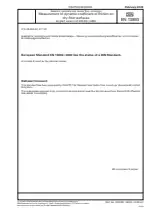ASTM F2913-19 PDF Download
Standard EN SampleStandard Test Method for Measuring the Coefficient of Friction for Evaluation of Slip Performance of Footwear and Test Surfaces/Flooring Using a Whole Shoe Tester
Also Known As:
A common test procedure called ASTM F2913-19 measures the coefficient of friction between shoes and floors to assess slip resistance. This technique enables repeatable testing of whole footwear and sole materials in a lab setting. This test method is specifically created for evaluating the relative slip performance of footwear, in contrast to other ASTM test methods, which largely focus on analyzing flooring materials.
The test procedure is suitable for a variety of footwear styles, including those with sheet soling materials, heel top lifts, and outsole units. It can also be used on the majority of flooring materials, including mats and stair nosing, as well as on contaminated surfaces, including those covered in liquid water, ice, oil, or grease. The test procedure may also be applied to surfaces including lawn, gravel, and block pavers.
It's crucial to note that this method can also be used to test special-purpose footwear or fittings that have spikes or metal studs, although it doesn't fully take into consideration the risk of tripping due to footwear or ground interlock. While the values in parentheses are supplied for informational purposes, the standard values indicated in the ASTM test method are in metrics and should be taken as the standard.
| Descriptors | whole shoe tester, slip resistance,Footwear,Coefficient of Friction,Skid/Frictional Resistance,Testing Instruments,Walkway Surfaces |
| ICS Codes | 61.060 - Footwear 97.150 - Floor coverings |
| Language(s) | English |
| File Size | 266.2 KB |

